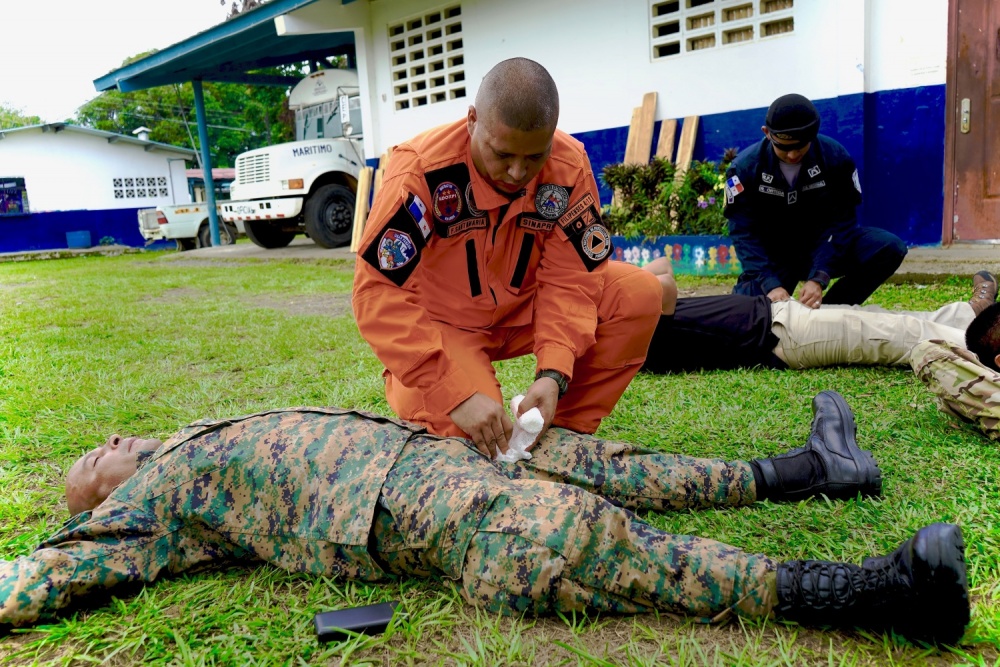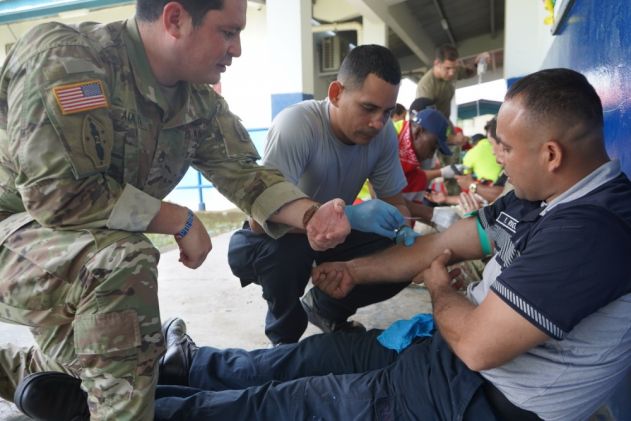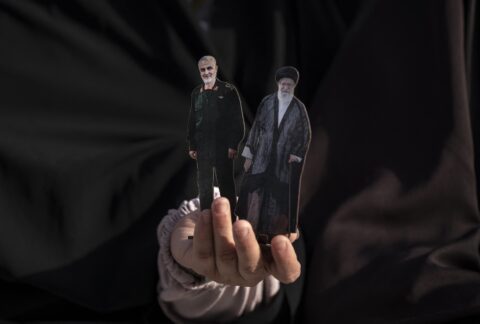Strengthening partnerships and improving critical skills with over 10 government and civilian sector agencies was the focus of a week-long first aid seminar held at the Western Battalion of the Panamanian National Border Service (SENAFRONT, in Spanish) in Chiriquí province, Panama, August 26-30, 2019.
Civil Affairs team members, deployed in support of U.S. Special Operations Command South, joined efforts with personnel from SENAFRONT, the Panamanian National Police (PNP, in Spanish), the Panamanian Air and Naval Service, the Fire Department, the Emergency and Rescue Medical Care Service Section, the National Civil Protection System, National Immigration Service, Ministry of Health, Department of Environment and Resilience, National Civic Protection System, and Autonomous University of Chiriquí during a seminar aimed at sharing first aid best practices to enhance skills and knowledge among Panamanian safety and security agencies.
The event kicked-off with welcome remarks by Juan Carlos Muñoz, governor of the Chiriquí province; Commissioner Rolando Brees, head of SENAFRONT’s Western Battalion; U.S. Army Colonel Steven Winkleman, Security Cooperation officer at the U.S. Embassy in Panama; Sub-Commissioner Luis Miranda, head of PNP’s 4th Section; and Colonel Gonzalo Chang Gil, first commander of the Fire Department of Chiriquí.
“There is a need for this training,” said Comm. Brees. “The knowledge and skills obtained through this course increases the readiness of our security institutions. It will be employed by members of our community, ourselves, and our partners.”
“The words cooperate and serve represent what you do daily,” said Col. Winkleman. “Training is part of your ability to do your job. You serve the people daily and this is very important for the safety and security of Panama and the region.”
The training included an overview of emergency first response procedures encompassing adult, child, and infant cardiopulmonary resuscitation, first aid skills, and use of Automatic External Defibrillator equipment. Participants learned the steps to ensure proper care of injured personnel, including treatment of severe wounds and bleeding, hypothermia prevention, casualty evaluation, patient treatment and movement, and medical equipment and transportation familiarization.
Personnel from the Fire Department stressed the importance of collaboration and basic first aid education and time sensitive actions while rendering assistance to a casualty.

“The training allows us to foster good relations with the U.S. personnel and thus be able to establish strategic alliances of exchange and cooperation between both nations,” said Aliethy Rodriguez, paramedic assigned to the Fire Department, Health Care Services Section.
“It was a critical part of the overall success because they were able to open communications between them for the first time to coordinate participation, logistics and equipment requirements to support the training,” said U.S. Army Sergeant First Class Luis Alvarez, Civil Affairs noncommissioned officer. “This training coordination and execution stressed the importance of involving the partner nation during the coordination and planning process and how the event contributes to long-term benefits.”









